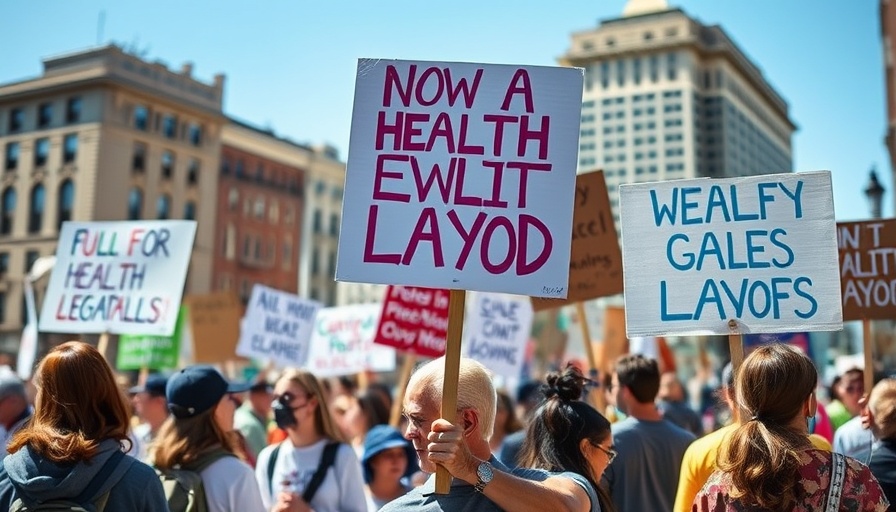
Mass Layoffs at Public Health Agencies Spark National Concern
On April 1, 2025, hundreds of employees across the nation’s public health agencies, including the Centers for Disease Control and Prevention (CDC), were notified of mass layoffs. This unsettling development raises alarming questions about the future of public health amid ongoing crises, including the impact of COVID-19 and emerging health threats.
The Immediate Reactions from Former Employees and Advocates
As news of the layoffs broke, former employees and health advocates gathered in protest outside the CDC headquarters in Atlanta. Many held signs and expressed their dismay at what they perceive to be a substantial threat to the nation’s health infrastructure. The protests underscored a deep frustration at the decision to cut jobs at a time when public health has never seemed more critical.
The Broader Implications for Health Care and Disease Prevention
This round of layoffs raises serious concerns about the long-term consequences for public health initiatives, disease prevention efforts, and community health support systems. According to public health experts, staffing cuts at agencies such as the CDC could stymie response efforts for diseases that are already showing a resurgence, including tuberculosis, influenza, and new infectious diseases.
Understanding the Motivation Behind Budget Cuts
Health and Human Services Secretary Robert F. Kennedy Jr. has defended the layoffs as a necessary measure to redirect resources and tighten budgets. However, many health professionals argue that such cuts will weaken the nation’s preparedness for future health emergencies. With health crises looming, the questions arise: how will these layoffs affect existing health programs, and what support will communities have in combating future disease outbreaks?
Community Responses: Voices from Davenport and Polk County
Locally in Davenport and Polk County, residents are left wondering how these layoffs affect their access to essential health services. The CDC has been a crucial resource in providing data and guidelines during public health emergencies, any reduction in staff is likely to have a ripple effect on health education and responsiveness at the community level. Local health advocates are calling for community engagement to ensure that public health needs remain prioritized.
What Can Citizens Do?
In light of these events, community members are encouraged to voice their concerns to local representatives and become involved in discussions around public health funding and priorities. By staying informed and advocating for robust health support systems, citizens can play a pivotal role in shaping their public health landscape.
Future of Public Health: Looking Ahead
As funding decreases and layoffs continue, the future of public health coordination hangs in the balance. Experts worry that without immediate interventions and increased public support for health funding, we may see heightened vulnerabilities in health systems across Florida and the nation. Community resilience will be critical in navigating this challenging environment.
Final Thoughts on the Importance of Public Health Investment
Given the current state of health crises, it's essential to stress the importance of investing in public health. Addressing community health needs now will help mitigate risks and ensure that medical innovations and wellness initiatives thrive in the future.
Now is the time for homeowners, renters, and anyone invested in their community's well-being to become vocal advocates for health funding and policy reform. Building a healthier future begins with action today.
 Add Row
Add Row  Add
Add 






Write A Comment